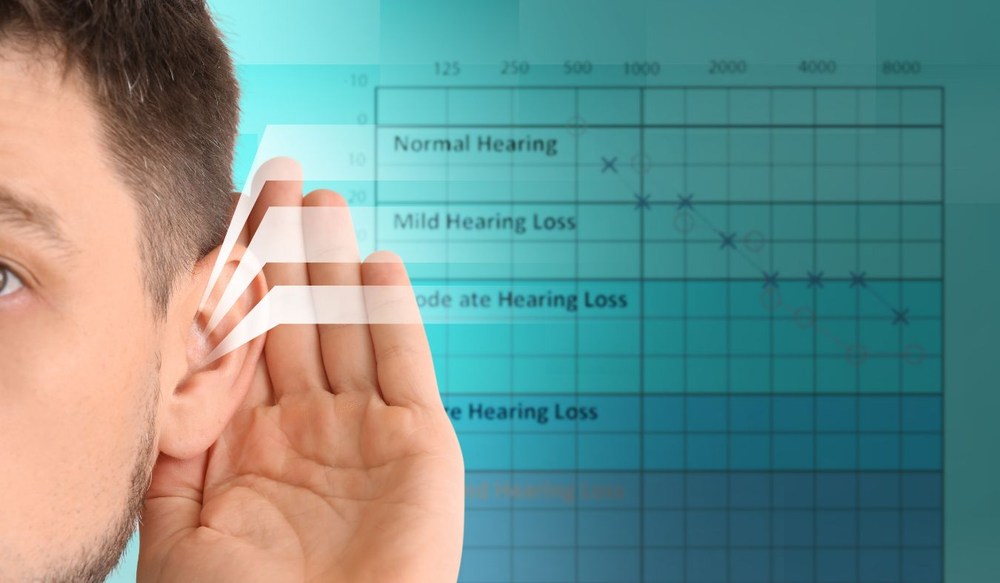How to Advocate for Yourself During a Hearing Test
A hearing test isn’t just something that happens to you while you

By: admin | August 28, 2024
Receiving your hearing test results is a significant event, a starting point towards improved hearing health. It’s understandable to feel a mix of emotions – relief at finally having answers, uncertainty about what comes next and even confusion over the technical language in your report. However, these results are not just numbers and graphs; they are tools that enable you to make informed decisions about your hearing care. Knowledge is indeed a strong ally in the intricate world of hearing health – giving you the ability to understand your unique situation and to take proactive steps towards better communication and quality of life.
When you visit an audiologist, a variety of hearing tests may be conducted to assess your hearing health and identify any potential issues. These tests help in understanding your hearing capabilities and formulating an effective treatment plan.
The world of hearing health might seem intimidating, especially when you’re presented with an audiogram – a graph that maps out your hearing abilities. Understanding this seemingly complex chart can be a challenge. However, it’s simpler than it looks! The key to reading an audiogram lies in familiarising yourself with its two main components: frequency (represented on the horizontal axis) and intensity (on the vertical axis). With a little practice and guidance from your hearing specialist, you’ll soon be able to interpret your own audiogram, taking another step towards managing your hearing health effectively.
Did you know that not all hearing loss is the same? In fact, there are four main categories: mild, moderate, severe and profound.
Mild hearing loss might mean missing out on certain sounds like birds chirping or whispers. It can also make following conversations in noisy environments a bit tricky. On the other hand, moderate hearing loss might cause difficulty in understanding speech without a hearing aid.
Severe and profound hearing loss are more significant. Severe means you may hear some loud noises but not regular conversation at normal levels while profound could mean only being able to hear very loud sounds or none at all. According to the World Health Organization, over five percent of the world’s population – that’s around 466 million people – have disabling hearing loss. This statistic underlines how common this symptom is and why understanding it is so important.
Knowing your degree of hearing loss is essential for effective management and treatment. Your hearing specialist will guide you through this process and help you find suitable solutions tailored to your needs.
Telling your loved ones about your hearing test results can be a difficult task. It’s not always easy to articulate your experiences and emotions about your hearing health. However, sharing these results is an important step towards building a supportive network around you.
The challenge here lies in explaining the technical aspects of your hearing loss in an understandable way. A good solution is to invite them to accompany you on a visit to your hearing specialist. This allows them to ask questions directly and gain a deeper understanding of what you’re going through, fostering empathy and support for the journey ahead.
Hearing aids are a common and effective treatment for hearing loss, designed to amplify sound and improve communication. They come in various styles to suit different needs and preferences, including behind-the-ear (BTE), in-the-ear (ITE), in-the-canal (ITC), completely-in-canal (CIC) and invisible-in-canal (IIC) options. Each style offers unique benefits in terms of comfort, visibility and sound quality.
BTE models are larger and sit behind the ear, making them suitable for a wide range of hearing loss levels. ITE aids fit directly in the outer ear, providing a more discreet option. ITC and CIC aids are smaller and less visible, fitting partially or entirely within the ear canal. IIC aids are the smallest and least noticeable, designed to be placed deep within the ear canal.
Choosing the right hearing aid depends on various factors, including the degree of hearing loss, personal comfort and lifestyle needs. Consulting with an audiologist can help determine the best style and features for optimal hearing improvement.
While it can be tempting to ignore the early signs of hearing loss, it’s critical for your overall wellness that you talk to an audiologist. Left untreated, hearing loss can impact a multitude of areas in your life, from your mental health to your cognitive ability.
Hearing loss significantly raises the risk of accidents and falls, with individuals affected being up to three times more likely to experience such incidents compared to those with normal hearing. This increased risk stems from the difficulty in detecting environmental cues, leading to a heightened chance of encountering hazards. For instance, a person who cannot hear a car horn might inadvertently step into traffic, resulting in injury. The inability to hear warnings from alarms or nearby traffic further amplifies everyday dangers, highlighting the critical need for awareness and preventive measures for those with hearing loss.
Hearing loss can contribute to cognitive decline over time. Difficulty in communication can impair the ability to process and retain new information, weakening problem-solving skills and memory. This cognitive impact can lead to challenges with daily tasks and has been associated with an increased risk of developing dementia. Addressing hearing loss proactively is crucial to maintaining cognitive health and overall well-being.
The isolation caused by hearing loss can lead to depression, particularly when communication barriers prevent effective interaction with others. Individuals might withdraw from social activities due to embarrassment or frustration, which can result in feelings of loneliness and a lack of support. Untreated hearing loss can exacerbate these issues, straining personal relationships and increasing the risk of mental health challenges.
The financial implications of hearing loss are notable, as untreated conditions can lead to difficulties in maintaining employment and managing other economic challenges. Communication barriers may hinder job performance, potentially leading to unemployment or financial instability. Additionally, the need for medical care related to hearing loss, like treatment for accidents or cognitive issues, can further strain finances.
Untreated hearing loss often results in social isolation, particularly among older adults who may feel embarrassed and withdraw from social engagements. This isolation can affect mental health, increasing stress and anxiety levels as individuals struggle to follow conversations and feel disconnected from their community. Maintaining social connections and managing hearing health are essential for overall mental and emotional well-being.
As we continue our discussion on hearing health, it’s important to note that there are small changes you can make in your everyday life that can have a big impact on your hearing health. These lifestyle changes, while seemingly simple, can go a long way in maintaining and even enhancing your hearing abilities.
Firstly, protecting your ears from excessive noise is essential. Whether it’s turning down the volume on your headphones or wearing earplugs at loud events, these actions can help prevent noise-induced hearing loss. Secondly, maintaining a healthy diet and regular exercise regime not only benefits your overall health but also supports good hearing. Foods rich in certain nutrients like omega-3 fatty acids and vitamins A, C and E have been associated with lower risks of hearing loss.
Regular check-ups with your audiologist are essential. These appointments allow for early detection of any potential issues and provide an opportunity for you to ask questions or express concerns about your hearing health. By incorporating these simple changes into your daily routine, you’re taking proactive steps towards preserving one of your most vital senses – your ability to hear.
After receiving your hearing test results, it’s time to take charge of your hearing health. Don’t shy away from asking questions. Your audiologist is there to clarify any doubts and provide guidance. Consider sharing your results with loved ones. This step not only keeps them informed but also helps build a supportive network around you. Start exploring treatment options suitable for your specific hearing loss. Remember, you are in control of your hearing health journey and every step you take brings you closer to improved communication and quality of life.
At Hearing Wellness Centre, we are committed to helping you on your journey towards better hearing health.
If you have any questions or concerns about your hearing test results or need further guidance on what to do next, please don’t hesitate to contact us at our Windsor, ON location on (844) 663-9433. Our team is ready and eager to assist you in making informed decisions about your care.
Knowledge truly is power when it comes to managing your hearing health. Let us empower you with the right information and support needed for improved communication and quality of life. Take that important step today – reach out and start a conversation about your hearing health with us at Hearing Wellness Centre.

A hearing test isn’t just something that happens to you while you
By: admin | October 20, 2025

Summer is a time for outdoor barbecues, beach trips and long walks in the
By: admin | July 29, 2025

When you find yourself asking people to repeat themselves more frequently
By: admin | June 20, 2025
